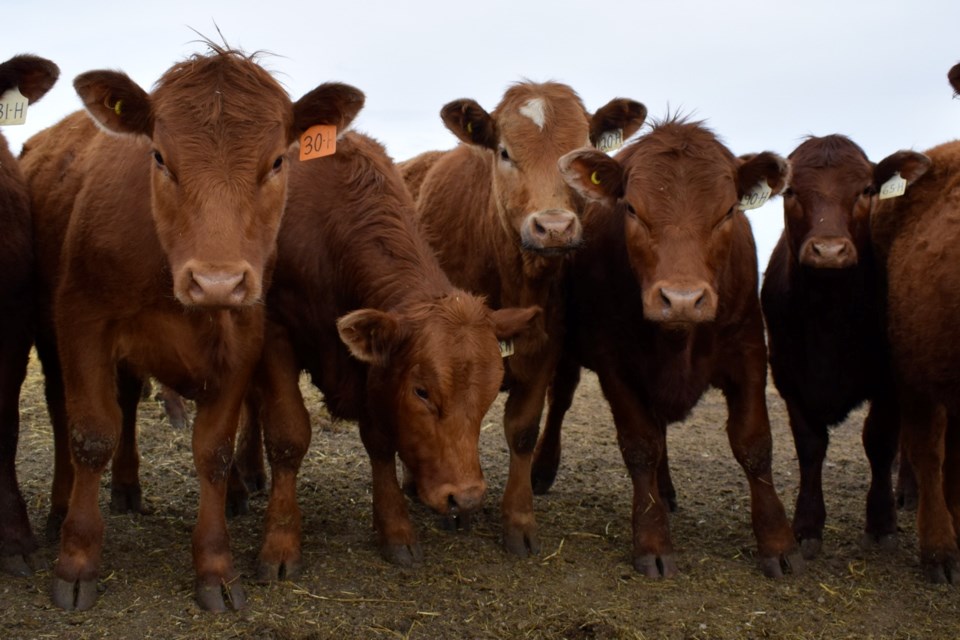ESTEVAN - Pastures are drying up with no regrow, and by mid-August, it became obvious that the ranching community will need significant help to get through this year.
The Mercury spoke to Jordan Mantei of Diamond M Ranch, who alongside his wife Amber runs a commercial herd west of Estevan.
“This is the worst year in the last five years of drought. The lack of snow in the winter and no rain in April did not allow the hay stands to get a good start. The heat in the end of June was the start of the hay stands drying out. So we lost both quality and quantity compared to other years,” Mantei said.
The Manteis have been running a Simmental purebred operation since 1994, but they recently downsized and switched focus, which leaves them in a bit better shape now.
“We were fortunate that we have downsized our herd in the last two years because we were shifting our focus from purebred cattle to more crop production. This has allowed us to have a bit of a carryover of feed left over from 2020. We have talked to other producers that were looking to shipping cattle to different parts of the Western provinces where they had more feed and could be custom fed,” Mantei said.
“Producers who rely mainly on hay production to feed their cattle are in bad shape because of production. The pastures are drying up with no regrowth of grass so there will not be any late fall grazing, and feeding hay is going to start earlier than normal.”
While Diamond M Ranch will have enough hay to get through the winter with carryover from last year that will help, that’s not the case for many other ranchers in the southeast.
“We are in a better position than most producers we have talked to,” Mantei said.
Mantei also grows oats so that they have the option to either have green feed or grain for the cattle. Besides, they had some corn for corn grazing or silage to help with feeding the herd. In this case, the rains came just in time to help plants grow. However, the recent heat has affected the condition of the plants.
“The latest heat wave has been drying the leaves on the corn, so hopefully there will be cobs there for the cows this winter to graze,” Mantei said.
The drought has dried out most of the sloughs in the southeast and brought the levels of water in dugouts to critical. Mantei said this spring they assessed their water situation in the dugouts. There were two dugouts they needed to haul water in from another source for the cows. Other water sources are also quite low but they should make it to the fall when the cows will get moved closer to home for the winter.
“Some of the low dugouts we are using solar water systems to pump the water out instead of letting the cattle drink straight out of the dugout and muddying up the water,” Mantei explained.
To aid livestock producers facing drought conditions, last week the provincial government announced that they have committed $119 million in direct support through the AgriRecovery program. On Aug. 15, the federal government committed more funds under the AgriRecovery program. The announcement came a little more than a week after the federal government released $100 million in funding under AgriRecovery.
The province plans to issue an initial payment of $100 per breeding female. The province said that in addition to cattle producers, funding will be available to producers of other ruminant animals.
“It is great that the government has acknowledged there is a situation for cattle producers but this drought is so wide spread in the Western provinces that feed is almost impossible to find and the cost of the feed and shipping will be more than what the funding will cover. In the cattle industry the margins are so tight that any extra unplanned expenses can eat up your profit quickly,” Mantei said, adding that once the support is rolled out they will be looking into it.



